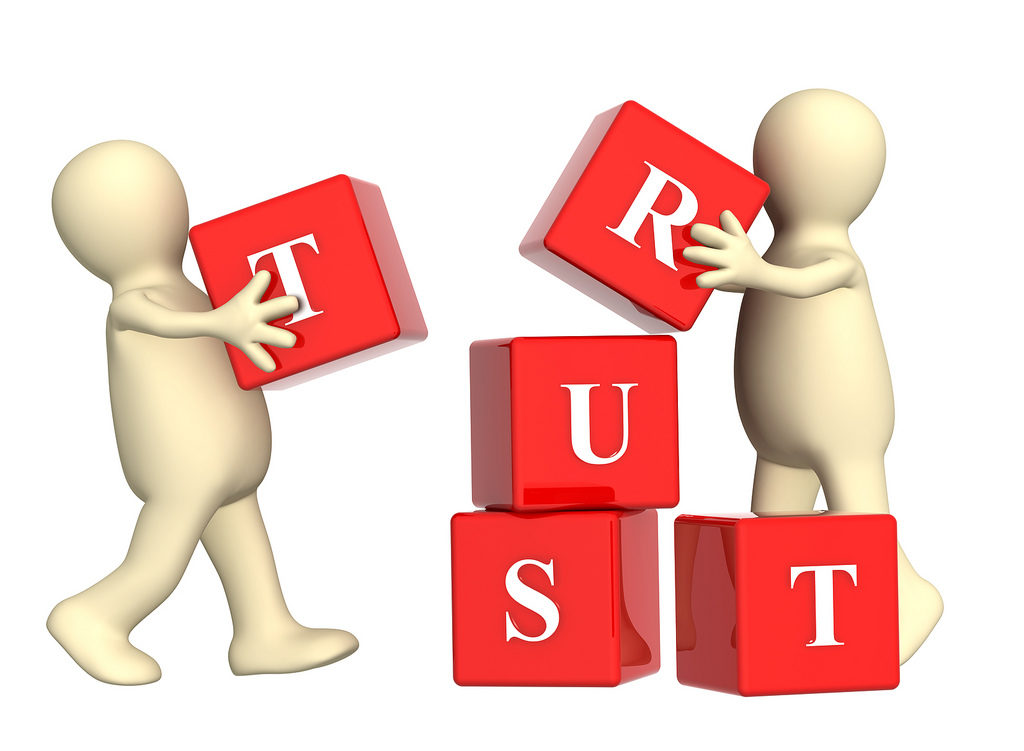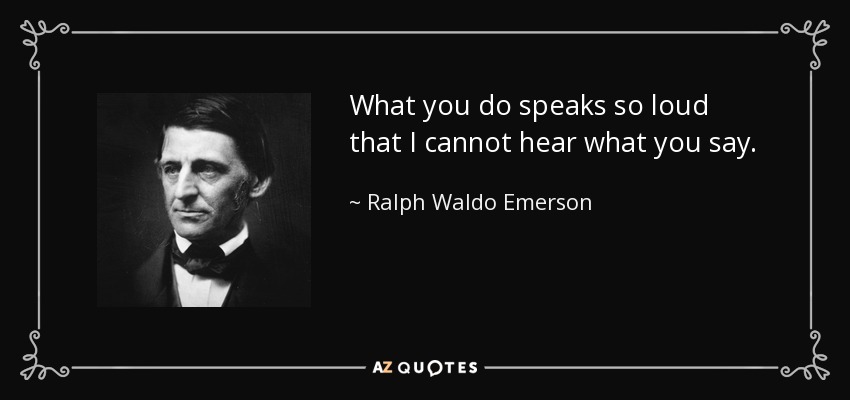Click here to return to Blog Post Intro
Trust has taken a hit lately in all facets of our life–whether it’s the economic meltdown, financial mismanagement, or just an increasing sense that everyone seems to be in it only for themselves.
A recent poll by Maritz indicates that only 7% of workers strongly agree that they trust their senior leaders to look out for their best interest. And a survey by MasteryWorks indicated that a lack of trust correlated highly to employee turnover.
Trust is a primary factor in how people work together, listen to one another, and build effective relationships. Yet many people are unaware of the actions that influence trust.
Studies show that productivity, income, and profits are positively or negatively impacted depending on the level of trust in the work environment.
The Four Elements of Trust
There are four key elements that leaders need to be aware of when they are looking at building or restoring trust with the people they lead—the TrustWorks! ABCD Trust Model:
Able
Able is about demonstrating competence. Do the leaders know how to get the job done? Are they able to produce results? Do they have the skills to make things happen—including knowing the organization and equipping people with the resources and information they need to get their job done?
Believable
Believable means acting with integrity. Leaders have to be honest in their dealings with people. In practical terms, this means creating and following fair processes. People need to feel that they are being treated equitably. It doesn’t necessarily mean that everyone has to be treated the same way in all circumstances, but it does mean that people are being treated appropriately and justly based on their own unique circumstances. Believability is also about acting in a consistent, values-driven manner that reassures employees that they can rely on their leaders.
Connected
Connected is about demonstrating care and concern for other people. It means focusing on people and identifying their needs. It is supported by good communication skills. Leaders need to openly share information about the organization and about themselves. This allows the leader to be seen as more of a real person that a direct report can identify with. When people share a little bit of information about themselves, it creates a sense of connection.
Dependable
Dependable is about reliably following through on what the leaders say that they are going to do. It means being accountable for their actions and being responsive to the needs of others. If leaders promise something, they must follow through. It also requires being organized and predictable so that people can see that the leaders have things in order and are able to follow through on their promises.
Eight Tips to Improve Trust
If you’re looking for ways to elevate the level of trust currently present with your team, here are eight ideas to consider:
- Demonstrating Trust: If you want to create a trusting work environment, you have to begin by demonstrating trust. Establishing rules, policies, and procedures to protect against a few bad apples sends the wrong message to the vast majority of people in your organization who need and deserve to be trusted.
- Sharing Information: Information is power. One of the best ways to build a sense of trust in people is by sharing information. Sharing information sometimes means disclosing information that is considered privileged. Providing people with more complete information communicates trust and a sense of “we’re in this together.” It helps people think more broadly about the organization and the inter-relationships of various groups, resources, and goals.
- Telling It Straight: Study after study has indicated that the number one quality that people want in a leader is integrity. People want to follow someone they trust. Leaders who tell it straight, who are open and honest even about bad news, develop the trust essential for strong, long-term relationships—inside and outside the company.
- Providing Opportunities for Everyone to Win: Do you want your people to work together or to compete against each other? When people within an organization are forced to compete against one another, you lose everyone’s trust. Now all people are concerned about is looking out for number one.
- Providing Feedback: Make sure leaders schedule and hold regular progress-check meetings with their direct reports. This will allow managers to catch problems before they become major issues and significantly increase the chances that a direct report’s performance will meet expectations when it’s time for their performance review.
- Resolving Concerns Head On: Resolve concerns head on by putting challenges on the table and giving people an opportunity to influence the process. When leaders expand people’s involvement and influence, there is more buy-in because people are less likely to feel they are being controlled. This builds trust and increases the credibility of the leader.
- Admitting Mistakes: An apology can be an effective way to correct a mistake and restore the trust needed for a good relationship. But in many organizations, employees and managers are conditioned to hide mistakes because it’s not acceptable to make them. And that leads to bigger problems. Leaders who admit mistakes when they are wrong are not seen as weak—they are seen as having integrity and being trustworthy.
- Walking the Talk: A leader, above all, has to be a walking example of the vision and values of the organization. The key to leadership is being able to develop a trusting relationship with others. Without trust, it is impossible for an organization to function effectively. Trust between leaders and the people they lead is essential for working together. If leaders say one thing and do another, people will question their trustworthiness.
Building trust is the foundation of all solid and healthy relationships. We all need to remember that our actions speak more loudly than our words. Trust can take a long time to build, but at the same time can be destroyed by a single action or misconception.
Trust is an extremely important commodity to any relationship, personally or organizationally.
By being aware of and applying the TrustWorks! ABCD Trust Model, you can build high levels of trust.
May you build trust with others, as you shoot for the stars!


